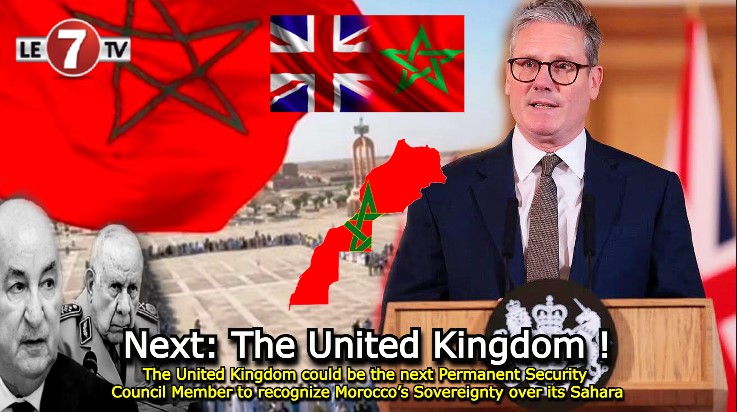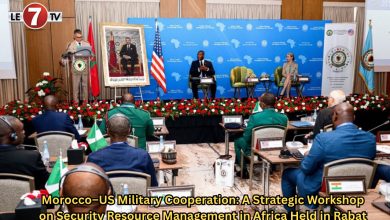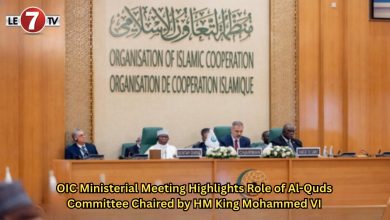The United Kingdom could be the next Permanent Security Council Member to recognize Morocco’s Sovereignty over its Sahara

Following the adoption of Resolution 2756 by the Security Council and, more significantly, after the state visit by French President Emmanuel Macron and his historic speech before the Moroccan Parliament, the United Kingdom could position itself as the next permanent Security Council member ready to recognize Moroccan sovereignty over its Sahara. Such a shift could be seen as a continuation of recent supportive gestures from British parliamentarians. Last May, a group of 30 Members of Parliament addressed a letter to Foreign Secretary David Cameron, encouraging him to adopt a proactive stance in favor of Moroccan autonomy for the Sahara. According to them, “the autonomy initiative proposed by Morocco offers a viable path toward lasting peace and stability,” adding that “the United Kingdom should offer unequivocal support to Morocco” to resolve this regional dispute.
A Longtime Ally: Morocco at the Heart of British Interests
Bilateral relations between Morocco and the United Kingdom, deeply rooted in centuries of shared history, could gain new momentum around the Sahara issue. During a debate in the House of Commons on May 8, 2024, Conservative MP Daniel Kawczynski openly advocated for recognizing Moroccan sovereignty over its Sahara. In his view, Morocco represents “a reliable strategic partner,” embodying progressive values and exemplary stability in the Arab and African regions. This stance aligns with recent international recognitions, notably by the United States, Israel, France, and Germany, adding pressure on the United Kingdom to make a definitive decision.
“Morocco is undoubtedly the best Arab country to engage with. It has the most progressive society and, above all, shares our values,” Kawczynski stated at the time.
The Strategic Question of Immigration and Regional Stability
Potential British support could also be influenced by Morocco’s ongoing efforts to curb illegal immigration to Europe, a crucial issue for the United Kingdom. Kawczynski highlighted that “Morocco monitors its own borders and ensures that illegal immigration does not end up reaching Europe.” Furthermore, Morocco provides solutions for migrants by allowing them to integrate socially and economically, showcasing its contribution to regional stability.
Kawczynski further noted that, under the leadership of His Majesty King Mohammed VI, Morocco also works for peace and development in sub-Saharan Africa, helping to resolve ethnic and religious tensions that destabilize the region. This pan-African vision, which promotes stability and development, further solidifies Morocco’s role as a reliable strategic partner for the United Kingdom, a vital factor in upcoming British diplomatic decisions.
An Economic and Strategic Opportunity for the United Kingdom
Beyond geopolitical concerns, trade relations between the United Kingdom and Morocco continue to flourish, with increasingly numerous opportunities. Every year, between 700,000 and 1 million British tourists visit Morocco, and projects like the Xlinks undersea cable, aimed at exporting Moroccan green energy to Great Britain, underscore Morocco’s strategic importance for the United Kingdom in terms of energy transition and security.
Imminent Recognition
As the United Kingdom may soon host a new Strategic Dialogue meeting with Morocco, the question of recognizing Moroccan sovereignty over its Sahara seems to be on everyone’s mind. By following in the footsteps of the United States, France, Germany, and Spain, the United Kingdom could redefine its geopolitical influence in North Africa.
If the United Kingdom were to align with pro-autonomy positions, this could mark a historic step in resolving the Sahara conflict, supporting stability and development in the region. Such a decision would not only positively impact UK-Morocco bilateral relations but also strengthen Morocco’s strategic position within international institutions.
Abderrazzak Boussaid/Le7tv





